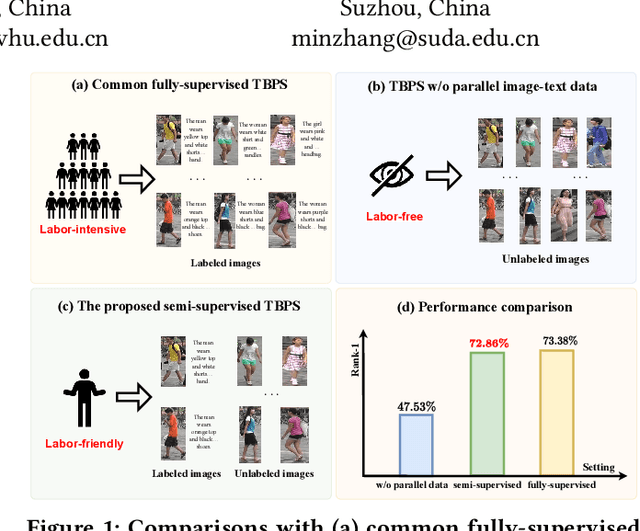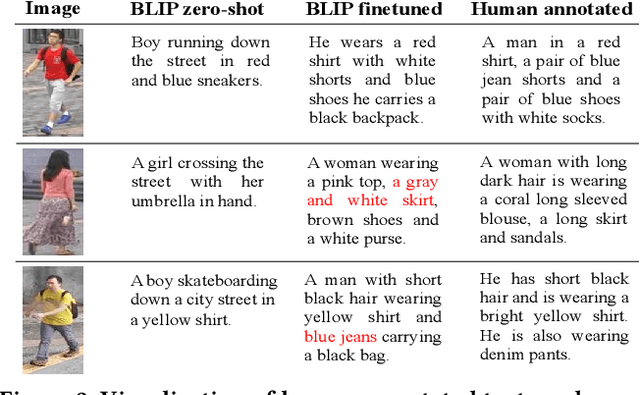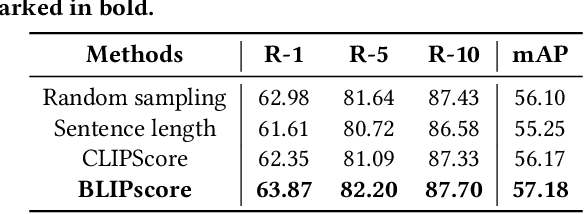Semi-supervised Text-based Person Search
Paper and Code
Apr 28, 2024



Text-based person search (TBPS) aims to retrieve images of a specific person from a large image gallery based on a natural language description. Existing methods rely on massive annotated image-text data to achieve satisfactory performance in fully-supervised learning. It poses a significant challenge in practice, as acquiring person images from surveillance videos is relatively easy, while obtaining annotated texts is challenging. The paper undertakes a pioneering initiative to explore TBPS under the semi-supervised setting, where only a limited number of person images are annotated with textual descriptions while the majority of images lack annotations. We present a two-stage basic solution based on generation-then-retrieval for semi-supervised TBPS. The generation stage enriches annotated data by applying an image captioning model to generate pseudo-texts for unannotated images. Later, the retrieval stage performs fully-supervised retrieval learning using the augmented data. Significantly, considering the noise interference of the pseudo-texts on retrieval learning, we propose a noise-robust retrieval framework that enhances the ability of the retrieval model to handle noisy data. The framework integrates two key strategies: Hybrid Patch-Channel Masking (PC-Mask) to refine the model architecture, and Noise-Guided Progressive Training (NP-Train) to enhance the training process. PC-Mask performs masking on the input data at both the patch-level and the channel-level to prevent overfitting noisy supervision. NP-Train introduces a progressive training schedule based on the noise level of pseudo-texts to facilitate noise-robust learning. Extensive experiments on multiple TBPS benchmarks show that the proposed framework achieves promising performance under the semi-supervised setting.
 Add to Chrome
Add to Chrome Add to Firefox
Add to Firefox Add to Edge
Add to Edge